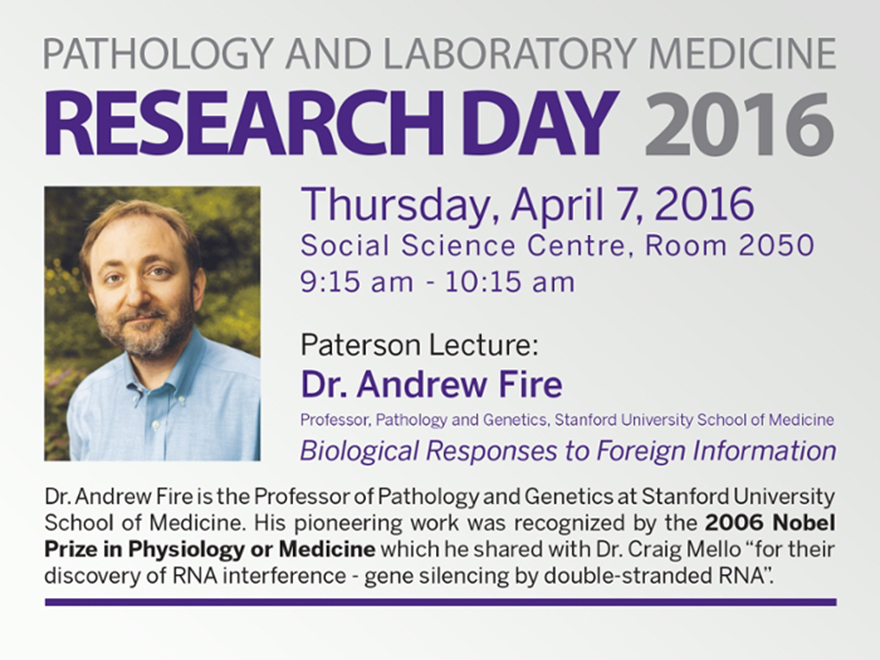Paterson Lecture 2025
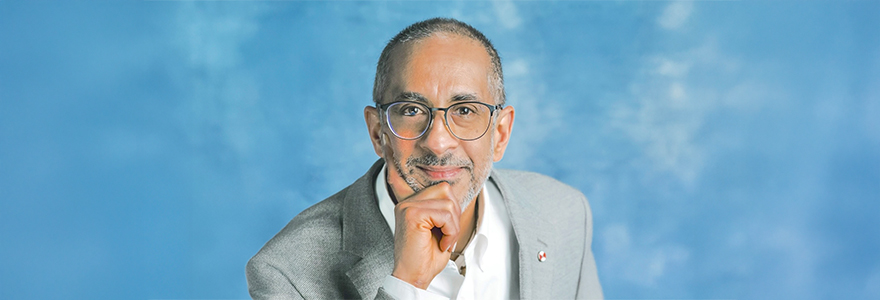
Ravi Menon, PhD
Professor,
Medical Biophysics and Medical Imaging,
Western University
Tuesday, December 2, 2025
12:30 p.m. – 1:30 p.m.
University Hospital, Auditorium A
“Bridging the microscopic to the mesoscopic to understand deficits from mild traumatic brain injury”
- Event Flyer (PDF, 440 KB)
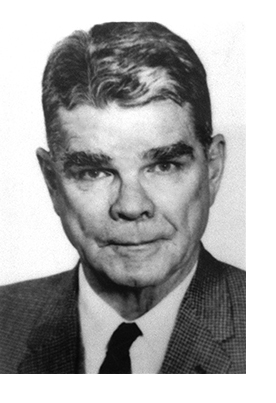 The Paterson Lecture Series was started in memory of Dr. James Charteris Paterson, a Professor in the Department of Pathology at Western University from 1965-1972. He and Dr. John Fisher established the initial departmental research programs leading to MSc and PhD degrees in basic medical sciences.
The Paterson Lecture Series was started in memory of Dr. James Charteris Paterson, a Professor in the Department of Pathology at Western University from 1965-1972. He and Dr. John Fisher established the initial departmental research programs leading to MSc and PhD degrees in basic medical sciences.
Born in Chesley, Ontario, Dr. Paterson graduated from the University of Toronto in 1925. For almost ten years he worked in South America in industrial and tropical medicine before training as a Pathologist in Toronto. During this period he developed an interest in cardiovascular pathology and, after service with the RCAC during World War II, he came to the University of Western Ontario in 1945 to pursue his research on vascular disease.
During the subsequent years he served as Chief of Pathology at Westminster Hospital and a Professor of Pathology. At one point he was Chairman of the WHO Study Group in Atherosclerosis. Dr. Paterson was devoted to the training of students and of many residents. He carried out studies on atherosclerosis, and also on toxicity of inhaled metals such as Cadmium.
Dr. Paterson passed away in January 1972. The Paterson Lectureship was established in his memory and the first lecture was given in October 1982 by Dr. Barry Pierce on the subject “How does the blastocyst regulate malignant cells?”
Paterson Lecture 2022
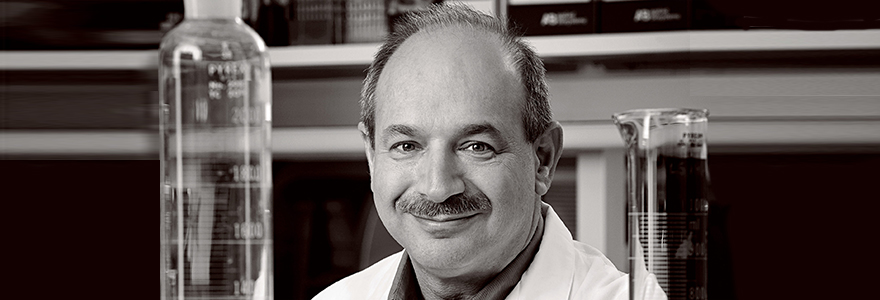
Bruce Beutler, M.D.
Director, Center for the Genetics of Host Defense
Regental Professor, Raymond and Ellen Willie Distinguished Chair in Cancer Research
University of Texas Southwestern Medical Center
Thursday, November 10, 2022
12:00 p.m. – 1:00 p.m.
Schulich Webinar Zoom Link
“Forward genetics in the mouse: automated meiotic mapping”
Paterson Lecture 2021
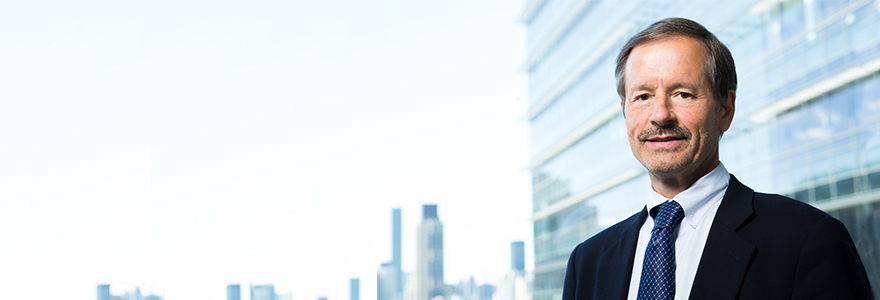
Lewis C. Cantley, PhD
Margaret and Herman Sokol Professor,
Director of the Sandra and Edward Meyer Cancer Center
Weill Cornell Medical College
Thursday, December 2, 2021
12:00 p.m. – 1:00 p.m.
Schulich Webinar
“New approaches for improving targeted cancer therapies”
Paterson Lecture 2020
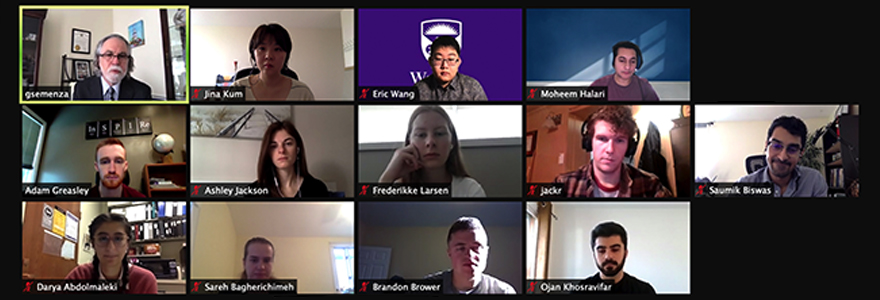
Dr. Gregg Semenza meeting with MSc and PhD candidates from Pathology and Laboratory Medicine
Our 2020 Paterson Lecture was held on Thursday, November 19. Although this year posed unique challenges related to SARS-CoV-2 pandemic and limitations on in-person participation, the essence of our high-profile marquee event was maintained. Our invited guest, Dr. Gregg Semenza, is a Professor of Pediatrics, Radiation Oncology and Molecular Radiation Sciences, Biological Chemistry, Medicine, and Oncology at the Johns Hopkins University School of Medicine. He is also the Director of the Vascular Program at the Institute for Cell Engineering.
Dr. Semenza is perhaps best known for his discovery of hypoxia-inducible factor, a molecule that is activated by reduced oxygen and plays a critical role in certain diseases. Dr. Semenza’s work has sparked extensive research and development of novel treatments for diseases such as cancer and ischemic cardiovascular disease, in which reduced oxygen is a major feature of the disease. For his discoveries, he was awarded the 2019 Nobel Prize for Physiology or Medicine (shared with William G. Kaelin, Jr., and Sir Peter J. Ratcliffe).
Prior to delivering the Paterson Lecture, Dr. Semenza met with our young researchers from the MSc and PhD programs. Although the meeting was conducted virtually, all trainees appreciated the opportunity and felt inspired. Following this meeting, Dr. Semenza delivered the Paterson Lecture through Zoom webinar with 150 participants from across Schulich Medicine & Dentistry and affiliated hospitals. He took the participants through an engaging and inspiring journey that led to his seminal discoveries and presented some highlights from his ongoing efforts to understand oxygen sensing in cells and its relation to human diseases. The overall event was very successful, and we are thankful to Dr. Semenza for sharing his wonderful research.
As always, this event is only possible because of the hard work of many. Special thank you to Angela DeCandido, Nan Meng, Tracey Koning, Kathilyn Allewell, and Cheryl Campbell for their hard work in organizing the Paterson Lecture.
Paterson Lecture 2019
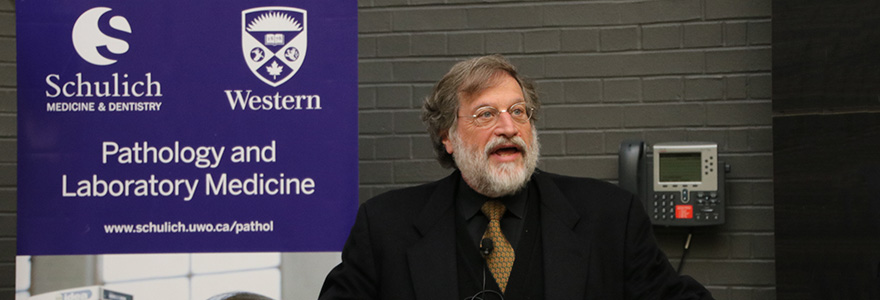
The 2019 Paterson Lecture was held on Thursday, November 14, 2019. We were fortunate to have Dr. Jeffrey Ravetch, Theresa and Eugene Lang Professor at the Rockefeller University and Head of the Leonard Wagner Laboratory of Molecular Genetics and Immunology, deliver the 2019 Lecture. Dr. Ravetch is a pioneering scientist and one of the most highly cited immunology researchers in the world. He has received numerous awards for his outstanding research. These include a Gairdner International Award in 2012, a Wolf Prize in Medicine in 2015, a Ross Prize in Molecular Medicine in 2017, and a Robert Koch Award in 2018.
Dr. Ravetch synthesized and presented his group’s decade-long effort to understand how antibodies mediate their diverse effector functions. He explained how the degree and pattern of sialylation of the invariant stem (Fc) region of antibodies can switch their pro- and anti-inflammatory properties. He also shared his thoughts and his group’s work on the redesign of antibodies to enhance their therapeutic capacity for the treatment of infectious, neoplastic and inflammatory diseases.
Special thank you to Angela DeCandido, Nan Meng, Tracey Koning, Kathilyn Allewell, Cheryl Campbell and Susan Underhill for their hard work in organizing the Paterson Lecture.

Paterson Lecture 2018
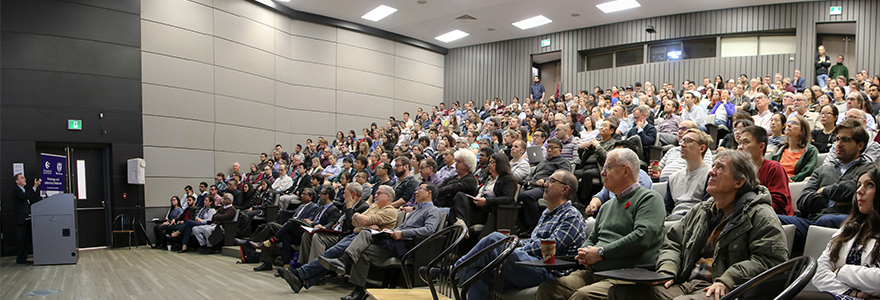
The Department of Pathology and Laboratory Medicine held its annual Paterson Lecture on November 8, 2018.
Dr. Randy Schekman, Professor of Molecular and Cell Biology at the University of California, Berkley, delivered the standing-room only 2018 Paterson Lecture. Dr. Schekman is an internationally renowned scientist – most noted for his pioneering work for which he shared the 2013 Nobel Prize for Physiology or Medicine with Drs. James Rothman and Thomas Südhof for their ground-breaking work on cell membrane vesicle trafficking. Dr. Schekman has received many other awards for his wonderful work, including the 1996 Gairdner Foundation International Award and the 2002 Albert Lasker Basic Medical Research Award.

To an appreciative and admiring audience, Dr. Schekman presented some of his laboratory’s recent work on RNA packaging in exosomes. Exosomes are vesicles released by cells and are emerging as biologically important means of cell communication. Dr. Schekman’s group has developed a method to better isolate these exosomes from cells to examine their contents and function. They found that some RNA molecules are hundreds or even thousands of times more concentrated in exosomes than in the cells. In addition to this important discovery, Dr. Schekman shared some of the mechanisms he believes are important in concentrating RNA in exosomes. Dr. Schekman also advocated for publicly accessible research, and encouraged young researchers at Western to publish in journals run by scholars and less in commercially-focused ones.
The 2018 Paterson Lecture was a great success. Special thank you to Rachel Halaney, Mellonie Carnahan, Tracey Koning, Kathilyn Allewell, Cheryl Campbell and Susan Underhill for their hard work in organizing the Paterson Lecture.

Paterson Lecture 2017
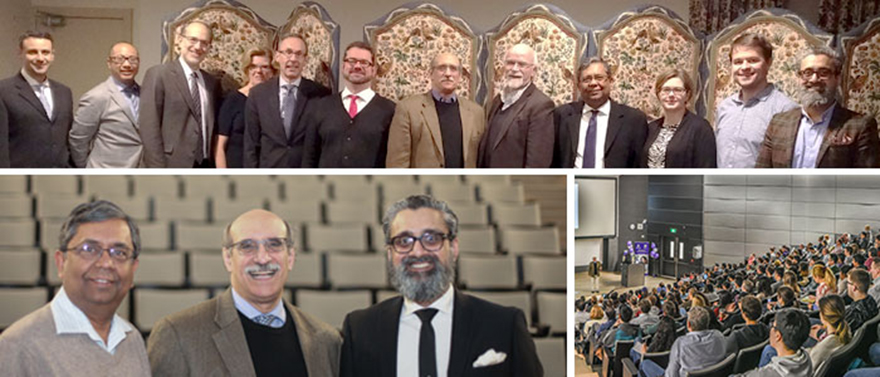
Initially planned for April, the 2017 Paterson Lecture was successfully rescheduled for December 14, 2017.
Dr. Martin Chalfie, Professor of Biological Sciences at Columbia University, delivered a riveting and entertaining Paterson Lecture. Dr. Chalfie is best known for winning the 2008 Nobel Prize in Chemistry with Roger Tsien and Osamu Shimomura "for the discovery and development of the green fluorescent protein, GFP”. In addition to this game-changing work, Dr. Chalfie has identified many genes involved in cell differentiation, and mechanisms regulating neuronal degeneration, microtubule and channel structure and function. His passion for foundational research was clearly on display during his lecture. The audience in the filled auditorium attentively followed his presentation on "Guarantor Transcription Factors in Cell Differentiation". Dr. Chalfie began his lecture by passionately advocating for ‘pre-print archives’. He mentioned how important it is for researchers to get research results disseminated quickly to advance science. He then presented recent work from his laboratory and the novel concept of ‘guarantors’ of gene expression. Guarantors do not activate gene expression by themselves but promote full activation of target genes regulated by other transcription factors. Dr. Chalfie’s lecture was the highlight of the year and arguably the best end to 2017.
Special thank you to Ms. Mellonie Carnahan, Tracey Koning, and Cheryl Campbell for their hard work in organizing the Paterson Lecture.
Paterson Lecture 2016
